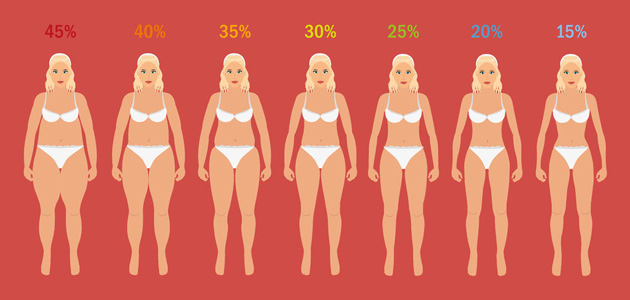Is your child overweight or is it just baby fat?
Welcome to the It’s NOT Just Baby Fat blog. Let me start by introducing myself. I’m a clinical psychologist, Professor Emeritus of Psychology at California State University and author of five books on weight and eating issues. Although I’ve been fascinated by the puzzle of eating and weight throughout my career, I confess to having a personal interest in the topic.
I was a formerly fat kid (wore “husky” clothes) and overweight adult. As a young adult I weighed 15 pounds more than I do now. Since the average American gains about a pound and a half each year, I should be obese by now but I’m pleased that my current BMI is in the normal range. Losing the excess weight and maintaining the loss has required that I unlearn many habits from childhood. It would have been much easier to have not learned them in the first place. Fortunately, my two children learned better eating and exercise habits and are now active, healthy-weight adults.
The purpose of this blog is to help parents to help their children develop healthy eating and exercise habits so that they don’t have to experience the stigma and rejection as an overweight child and suffer the health risks as an obese adult. BTW, throughout the blog, I’ll avoid using the tedious phrase “he or she.” Instead, I’ll randomly pick either gender. If there is a difference between boys and girls I’ll specifically mention the gender difference.
How do you know if your child is too heavy? Kids go through growth spurts and develop at different rates so it’s easy to assume that a “chubby” child just has too much baby fat, and with time will just outgrow it and become a normal weight teen and adult. Unfortunately, this is the exception rather than the rule. Several studies have documented that most overweight kids become overweight adults and one study suggested that the risk of being overweight as an adult was greatest if the child was overweight before age 11.
For most parents it’s not easy to know if their child is overweight. For adults, there are several ways to determine if they’re too heavy. You can measure your height and weight and use a chart to determine your BMI. If it’s above 25 you’re overweight or you’re obese if it’s above 30. This isn’t a perfect measure. Arnold Schwartnegger, Tom Cruise, and Denzel Washington have BMIs above 30 because they are muscular and muscle tissue is heavier than fat tissue so their BMIs are misleading, but for most of us the BMI is still useful for deciding if we need to lose weight.
Another measure useful for adults is waist circumference. Using a tape, you can measure the circumference half way between the bottom of your rib cage and the top of your pelvis. A circumference greater than 32 inches for women and 40 inches for men indicates too much fat. Perhaps the simplest measure is just how tight your clothes fit.
Although it isn’t a perfect measure, the Centers for Disease Control and Prevention (CDC) has charts which will compare your child’s BMI with other children of the same age. If your child is above the 85th percentile he is considered overweight while if he’s above the 95 percentile it’s considered to be obesity. It would be difficult if you had to calculate your child’s BMI and then use the age charts to determine your child’s weight percentile but fortunately they have an online calculator that will do the work for you. You’ll need to enter your child’s birthday, gender, height and weight and the calculator will yield your child’s BMI and percentile. Here’s the web address of the CDC calculator:
http://apps.nccd.cdc.gov/dnpabmi/
If your child is overweight or obese, you shouldn’t put him or her on a diet. I’ll discuss the hazards of childhood and teen dieting in a later blog, but for now, recognize that, as long as your child is still growing, he doesn’t need to lose weight. If you can help him develop healthy eating and exercise habits (no diets needed) he can maintain his weight, grow taller and slimmer and lower his BMI. Future installments of this blog will help you do this.
-
Could Food Porn Be Making You Fatter?
If the majority of your
-
Information On Vegan Weight Loss
Research shows that, on the whole, vegetarians are at a lower risk for
-
Fat Loss Exercise Strategies
How many calories you consume has a big impact on fat loss or gain. If
-
Proven Methods To Banish Your Love Handles Forever
Getting rid of your love handles can be accomplished by getting rid of
-
Clean Up Your Weight Loss Regime With These Tips
Sometimes losing weight is not easy. Th
-
Obesity - Is There A Cure?
Obesity has ravaged the United States of
- DON'T MISS
- Tired of Being Overweight Then Begin a Healthy Diet of Natural Foods
- Top 10 Weight Loss Tips to Burn Fat
- How to Use Your Web Site to Make Money
- Smart Substitutions: Sweet Cravings
- Rapid Weight Loss Tricks
- Chitosan Diet Pills
- Kettlebell For Women – two Intensive Kettlebell Workouts For Women
- Bodybuilding Weightloss Exercise Tips And Strategies
- How To Avoid Weight Loss Plateau And Shed More Pounds
- ByeBye Bread




